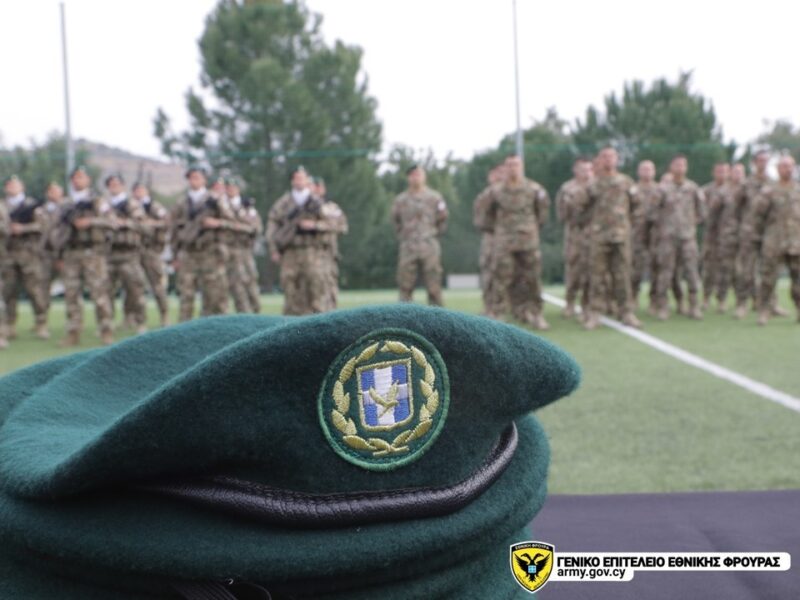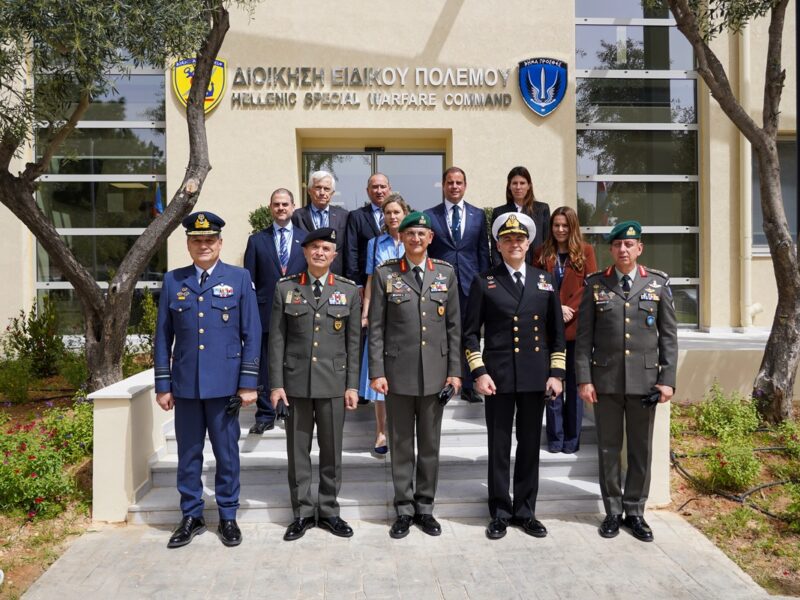Of Lieutenant General e.a. LAZAROU KAMPOURIDI * – SOURCE: PRESENT
By a decision of the Turkish National Assembly of June 1995, Ankara expressed its opposition to a possible intention of Athens to extend the XY beyond 6 miles and gave all powers to the Turkish government to protect and defend the vital interests of the country, including those deemed militarily necessary. This threat of Ankara continues to be the basic red line of all Turkish governments, Kemalist and neo-Ottoman.
In the last period, two new claims of Ankara have been added, which cannot be ruled out as reasons for a Turkish reaction with military means: the condition of challenging Greek sovereignty over islands in the Eastern Aegean which, according to Ankara, are subject to a demilitarization regime, as and the expansion of the HY of Greece south of Crete and east of Rhodes. The latter, although it has not yet been officially expressed, seems to be part of a new framework of revisionism on the Turkish side, since the areas south of Crete and east of Rhodes in the Turkish view, although they do not belong to the Aegean, partly affect the illegal Turkish-Libyan memorandum. We remind you that during his visit to Athens in March 2011, the then Turkish Foreign Minister A. Davutoglu said that Kastellorizo does not belong to the Aegean but to the Mediterranean.
The latest statements of Erdogan’s adviser I. Kalin, who called on Greece to withdraw from its natural borders (November 3, 2022), as well as the speech of Turkish Foreign Minister M. Cavusoglu at a Conference on Turkish Foreign Policy in the Aegean and in the Eastern Mediterranean (SETA Foundation, November 2, 2022), where he also displayed boundaries on a map of the Aegean with Ankara’s claims against our country, reveal that the Turkish revisionist framework has now moved even beyond the lines of A. Davutoglu , the theoretical “strategic depth” and the expansion of Turkey’s living space, and the realization of the vision of the “blue homeland” is being attempted, claiming control over half of the Aegean.
The upgrading of Greece’s geopolitical value, combined with Athens’ determination to define firm red lines against Turkish claims in the operational and diplomatic field, has troubled the Turkish side, which maintains its threatening rhetoric at an unprecedented level.
The answer to this question has to do with the real capabilities of the Turkish Armed Forces (TAF) to implement the authorization of the mandate of the Turkish National Assembly in 1995 and also the latest threats, since Ankara puts its claims not in terms of negotiation but in terms of ” hard power”. In this equation, the broader geopolitical situation (Ukraine) should also be taken into account, as well as Erdoğan’s ambitions – impasses in view of the elections (economy – low percentages) and the anniversary of the 100th anniversary of the founding of the Turkish Republic (2023) .
A possible extension of our CYs at this time would make it easier for Erdogan to break free of his deadlocks, increasing his ratings by rallying the large conservative voter pool, and would provide the Turkish President with a pretext for war to postpone the election if his ratings they do not provide a promise of his re-election.
The TED currently, due to the deployment of forces in Syria and Iraq, do not have the possibility to cause a “generalized war” with our country, only a “point incident”. A possible expansion of our HYs in the present period will probably change the operational data, reshaping the situation and Ankara’s goals, since there will be a lot of pressure on the Turkish President from all political arenas, resulting in a further hardening of Turkey’s attitude towards of our country, based on the decision of the Turkish National Assembly in 1995.
Although the Turkish Air Force and the Turkish Land Army are facing serious problems, which will take at least five years to resolve, Ankara could “neutralize” the fronts in Syria and Iraq and transfer forces to the Ebro and the Aegean, putting pressure on our country to be dragged into general conflict before our aeronautical armaments program can be completed.
Greece must proceed with the expansion of its XY, but the integration into the Hellenic Armed Forces of the aeronautical weapon systems whose supply has been initiated would provide the required certainty for the positive outcome of a Greek-Turkish, even generalized, military confrontation, regardless of whether they remain active fronts in Syria and Iraq.
Although it is Greece’s inalienable right to expand its XY, such a move by Athens at the current time, in the middle of the war in Ukraine, would not meet the expected Western support. In the next period, the West should prepare for the impending expansion of our country’s military assets in the medium term and accelerate the procurement and integration program of the weapon systems that were ordered, before the operational recovery of the CSX and TPA.
Greece should focus the current period on seismic surveys within areas of Greek sovereign rights, since in this way it also contributes to the energy security of Europe, and at the same time seek contacts with the countries of the region, including Libya, on the issues of maritime delimitation zones.
* Lieutenant General e.a. Lazaros Kambouridis is a Graduate of the School of National Defense, an MBA from Nottingham Trent University, a Graduate of the Department of History & Ethnology of the University of Athens and a PhD candidate at Panteion University, while he was a Member of the Greek Diplomatic Mission in Istanbul in the period 1995-1999 and a Defense Attaché at Greek Embassy in Ankara in the period 2013 – 2017. Retired in March 2022


